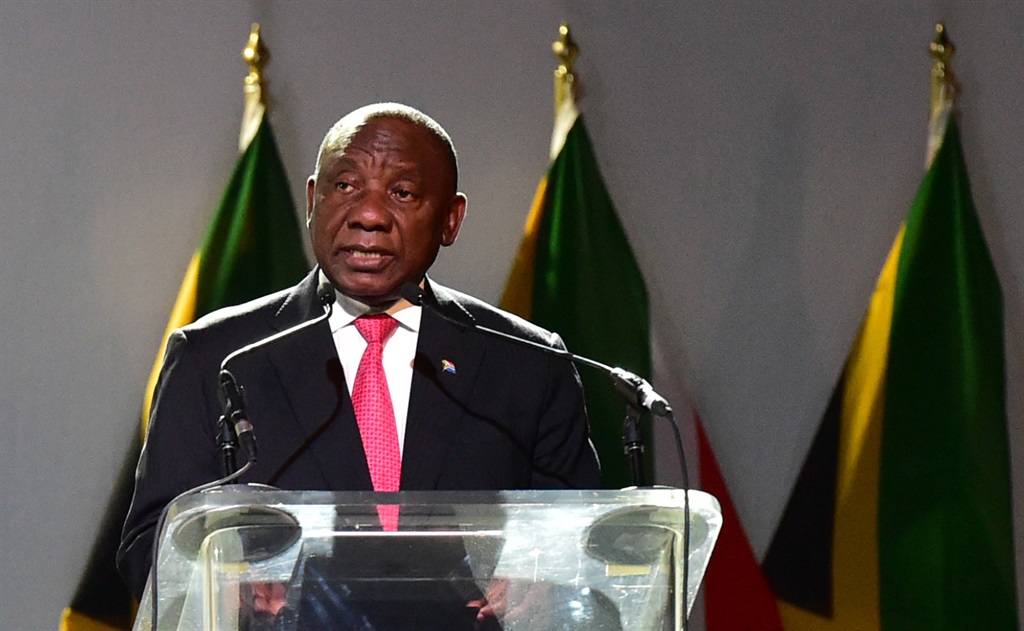
Africa’s women were supposed to be taking centre stage at the African Union summit in Ethiopia this past weekend.
President Cyril Ramaphosa said he planned to use his role as the new chair of the continental body to promote the economic empowerment of women.
It is ironic that he will tackle the issue of women in a country that, according to the UN, has some of lowest gender equality performance indicators in sub-Saharan Africa.
Ramaphosa said:
- The principle of equal pay for equal work is still not consistently applied;
- Women’s participation in certain industries, especially in science- and engineering-related fields, is still far lower than that of men;
- Women still carry the highest burden of childcare and “unpaid work” in the home;
- Women still occupy lower-paid positions and lower-skilled jobs; and
- Despite employment equity legislation, there are fewer women in senior management roles, especially in business.
But we’ve been having these conversations for years now, without much movement.
The Maputo Protocol was adopted by heads of state in 2003 to advance African women’s rights.
It includes progressive provisions on harmful traditional practices, such as child marriage and female genital mutilation; reproductive health and rights; roles in political processes and economic empowerment; and ending violence against women.
Nearly 17 years later, we sit with a continent that is still largely androcentric.
The genital mutilation of girls and women is still endemic in 29 countries in Africa – 26 of these have inadequate laws prohibiting the practice, and they are seldom enforced. About 130 million girls and women have undergone genital mutilation, and 125 million African women and girls have been married off before the age of 18.
According to the latest UN Human Rights report on women’s rights in Africa, one in three women have experienced either physical or sexual violence in their lifetime.
In six countries, there is no legal protection for women against domestic violence. In 2013, African women and girls accounted for 62% (179 000) of all global deaths from preventable causes related to pregnancy and childbirth.
It’s frightening. And I don’t think that many men really have the will to drive the change.
The most important sentence in Ramaphosa’s letter to the nation was this: “Importantly, this is a struggle that women themselves are leading in different areas and in different ways.”
This week, we heard about the death of Leila Janah, a social entrepreneur whose mission to end global poverty was cut tragically short by a rare form of cancer.
She was the founder of Samasource, a company that “employed more than 50 000 desperately poor people in Africa and India (half of them women) in the fervent belief that jobs, not handouts, offered the best escape from poverty”, New York Times obituary writer Richard Sandomir wrote.
It’s an impressive start to breaking a vicious cycle of poverty and despair.
As Ramaphosa said, the economic empowerment of women will result in raised incomes and standards of living, as well as in poverty alleviation and in more stable communities.
South Africa – and Africa – are making slow moves, mainly talk, to achieve these goals.
Gender equity studies and feminist philosophies are no longer relegated to the textbooks of progressive universities.
Gender-based violence has become part of South Africa’s discourse.
Terms such as “affirmative action” have made their way into the everyday human resources lexicon.
In South Africa, gender-based violence is prevalent, but so are the actions being taken to reduce it – with a few tangible changes.
Finally, newborn care is no longer only the task of South Africa’s mothers. Fathers can now take parental leave, albeit for just 10 days. In politics, women’s participation in African legislatures outpaces many in developed countries.
At nearly 64%, Rwanda is ranked number one in the world, with Senegal and South Africa in the top 10.
And, in one of the finest and most progressive pieces of legislation to be signed into law, employment laws were revised in Zambia in 2015 to grant all women one day of menstrual leave each month.
But if you want to examine a country whose women have shaped their own destinies, look no further than Rwanda, which emerged from a civil war and a genocide as a broken, divided nation in 1994.
Nearly 80% of those who survived were women. They stepped in to fill the gaps, creating new, women-friendly laws and overturning traditional practices.
Five years later, women were allowed to inherit property and open bank accounts without their husband’s permission, and gender-discriminatory laws – such as women being forbidden to work at night and marital rape not being seen as a crime – were tackled head-on.
Today, more than 60% of the country’s legislators are women. It can be done.
But good intentions alone are not enough.
We need more people such as Janah and the trailblazers in Rwanda, who get things done and act without cattle-auction bluster when making decisions.




 Publications
Publications
 Partners
Partners









